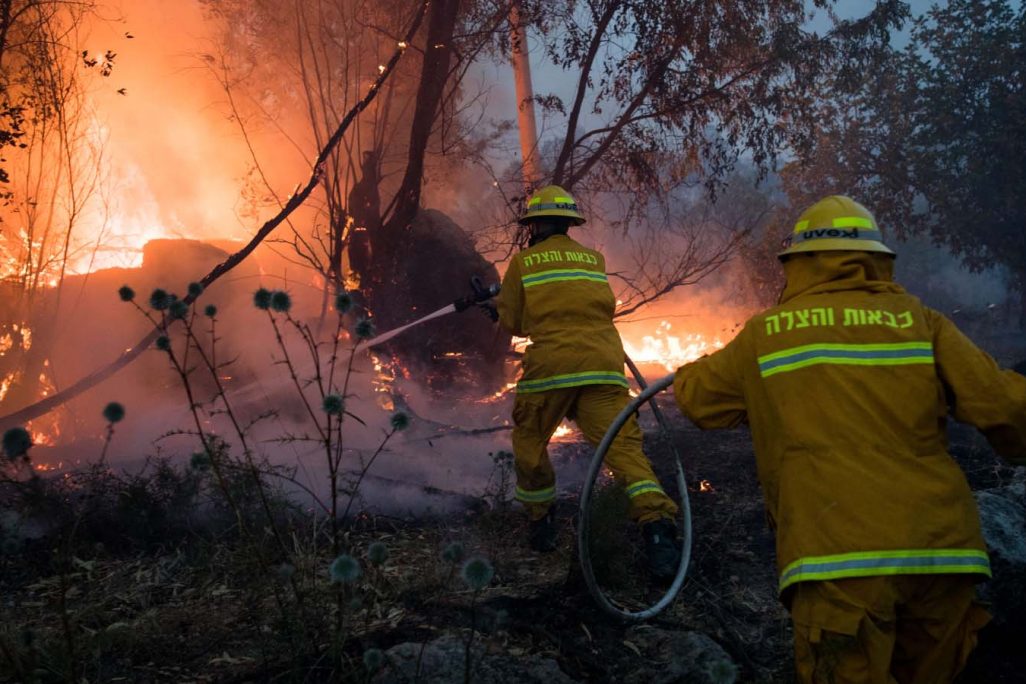
On Monday June 1, around 300 firefighters demonstrated before the Knesset in Jerusalem, protesting the aggressive conduct of the Fire and Rescue Commission and its commissioner, Deddy Simhi. Labor relations in the Fire Department have been shaky since Simhi took office in 2017.
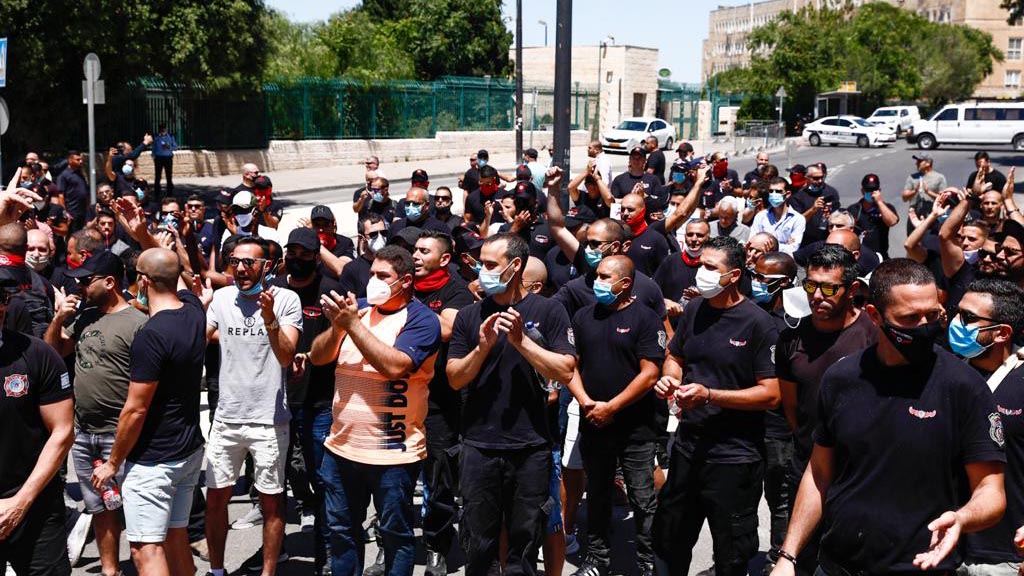
A letter sent by Gil Bar-Tal, Chairman of the Histadrut’s union for state employees, to the firefighters, stated: "Enough is enough. We intend to stop the forceful, aggressive conduct and the collective and personal punishment against the workers and their representation."
"I ask all firefighters and workers in the department to unite and come to a demonstration in Jerusalem," Bar-Tal wrote. "It is clear that no disciplinary hearings should be taken for the implementation of the organizational measures approved by the Histadrut."
The firefighters are protesting the following steps: a new directive compelling the firefighters to stay on duty between calls at the expense of rest time on shift, the decision of the commission to stop payments for risk insurance, and collective punitive steps against workers who are taking steps to organize.
Taking advantage of the corona crisis
The firefighters' shifts are 24 hours long. Up until now, firefighters have been allowed to rest in between operations, which may continue for long hours with stressful and physically difficult conditions. The Firefighters’ Union warns that the new guidelines, which are not accepted in other countries around the world, will prevent firefighters from resting, and may increase exhaustion reported by the firefighters. The union also warns against the development of job-related illness and even impairment in operational competence in a way that endangers firefighters and the public.
“Quite a few firefighters, officers, commanders said it was a mistake, a directive that isn’t right. We need to understand that this is dangerous – why make a firefighter tired before going into action? But this is the commissioner’s order, so they apply it,” said Avi Ankori, chairman of Firefighters’ Union.
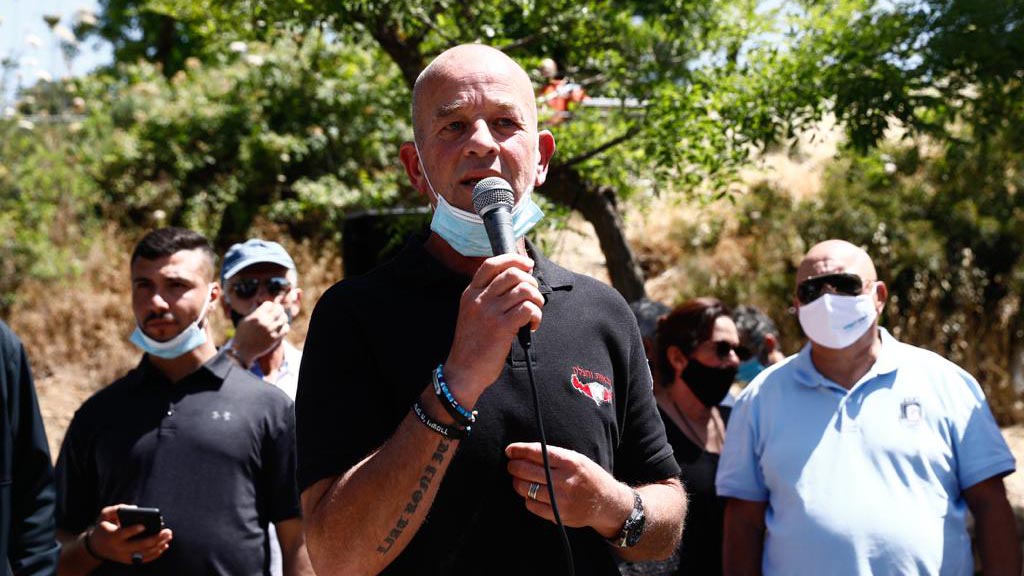
Ankori, in an interview Monday morning before the protest, explained how Fire Commissioner Deddy Simhi took advantage of the corona crisis to push through the directive.
“During the period of corona, [Simhi] said, ‘I’ve learned how to take advantage of situations, and corona came to me like a glove to a hand.' If until corona he tried to get away with underhanded tactics and we stopped him, now he’s doing the heavy hitting.”
Ankori continued: “He expected us to fight, to take organizational steps, but we decided to be the responsible adults. We understand that the whole country, the whole world, were in a crisis the likes of which have never been seen. There was no government formed, people are on unemployment. We took a deep breath, despite the damage to the workers. And he kept going and going.”
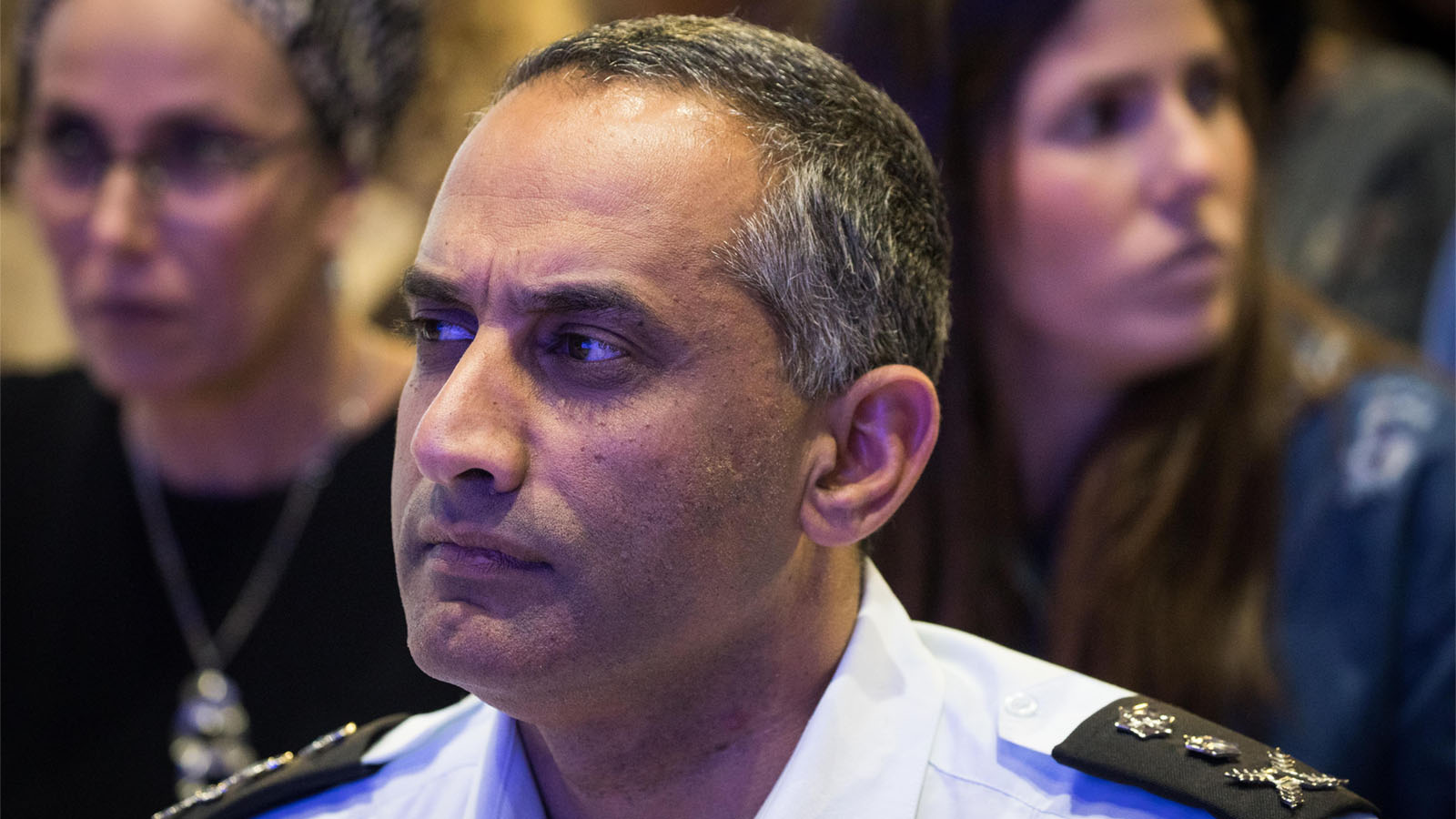
“We went to court, and in the beginning of April, we got support. He switched phases and started forcing the workers to be on duty during the rest times of their shift. Every time, there was a different reason. In the beginning, he said he didn’t want to lock the fire station at night, then he wanted them on call, but to everything we gave solutions,” Ankori said. “The firefighters rest in uniform during their shifts, they don’t sleep, they are ready to respond within 60 seconds to an incident. There is an announcement system, phones, walkie-talkies, a control board. Why do they need to be on call?”
Firefighters without risk insurance
The firefighters and Histadrut are also protesting the Fire Commission’s decision to delay the firefighters’ risk insurance agreement with insurance company Harel.
“Firefighters are working without risk insurance because the commissioner is delaying an agreement with the insurance company,” Bar-Tal wrote in his letter to the firefighters.
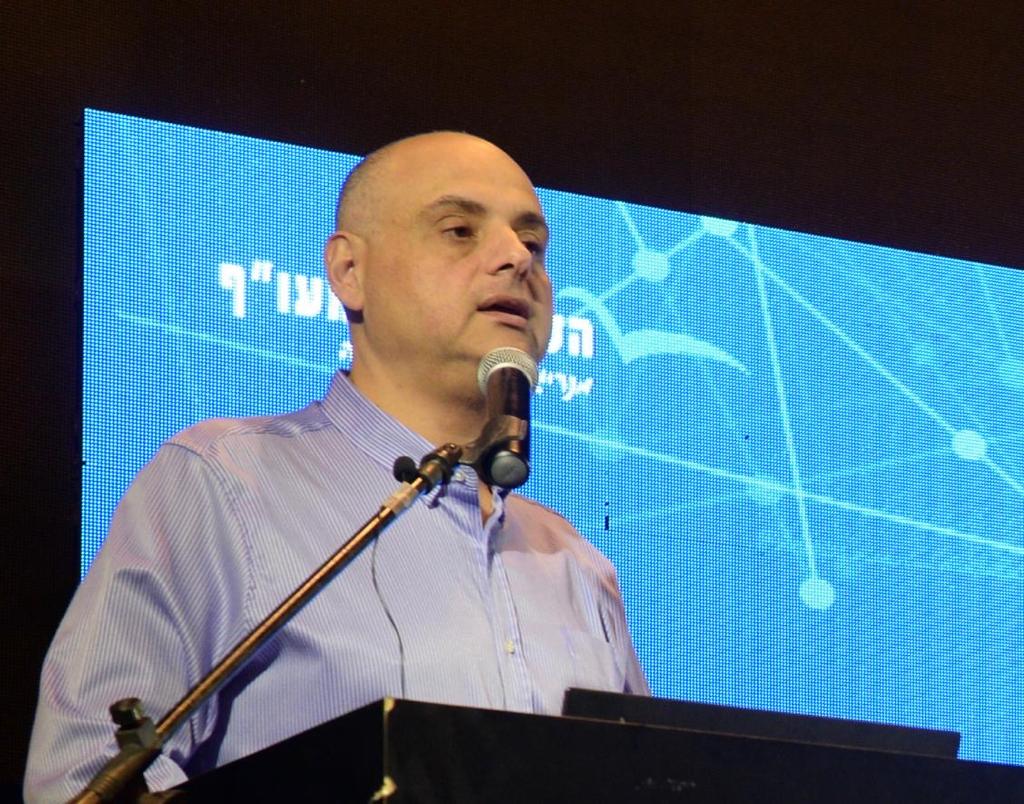
The Histadrut stated: "The firefighters are exposed and carry out their work without risk insurance in effect. The implications of this are critical and could be a financial disaster for them and their families."
Ankori explained how the delay will affect firefighters on the job, causing them to pay out of their pocket or else work uninsured in a highly risky job.
“We have risk insurance. It’s not full, holistic insurance, but it is meant to protect the firefighter if he is injured, or God forbid, killed. The insurance was stopped because the authorities didn’t transfer money to the Harel insurance company. Today the firefighters work without this insurance, and if God forbid something happens to them – they have no one to turn to,” he said.
“This is the insurance that the employer is supposed to pay 75% of and the worker 25%. The insurance expired three months ago. The union asked Harel to extend it a little more – but finally, starting on May 1, we have no insurance. In order to maintain continuity, every firefighter is obligated to pay 2,000 shekel per month independently.”
“There are also firefighters who have no way to pay, they just work today without insurance. Taking the risk. And the management says: 'Don't worry. If you get injured or die – we'll pay. " Don't tell us 'don't worry' – commit that if anything happens to us, God forbid, you're going to cover it!” he exclaimed.
Ankori also cited the fact that workers who are taking steps to organize have faced collective punishment.
“[The Commission] also convey[ed] a message to employees that they will not receive a pay raise because they have taken part in [the union’s] organizational measures,” he said.
“Firefighters are being threatened all the time,” Ankori continues. “From all the pressure, firefighters are going to the hospital. Collapsed. The writing is on the wall. We already had a firefighter commit suicide less than a year ago because they wanted to investigate him for hitting a fire truck after a full day of fire extinguishing. It's all about threats, trials and hearings. What else would a firefighter want to commit suicide? Who will defend us?"
"His goal was to break the union”
According to Ankori, Arnon Bar-David, Chairman of the Histadrut, got involved in January to help negotiations between the Firefighters’ Union and the Fire Commissioner move forward. Ankori hoped it would bring about an agreement, but to no avail.
“The Histadrut proposed creative solutions, and they didn’t accept any of it. It wasn’t just that Deddy Simhi delayed everything, it was also how it was managed. He would agree to something, and as soon as we would leave the room, he would leak some article about the Histadrut. His goal was to break the union,” he said.
“[Simhi] has staked his flag on cancelling the workers’ union, turning this organization into a military body. This is a civilian organization, with commands and hierarchy – but still civilian, with the right to strike and organize. This is how fire and rescue services are treated around the world,” Ankori continued. “He wants to turn this place into the army. For example, he put in people who were his commanders, 90% of the people he put in were military men. Why? Don't we have good people in firefighting? He is looking for soldiers, not firefighters.”
The Fire and Rescue Commission has not responded to these allegations.
Both Bar-Tal and Ankori demanded of the incoming Minister of the Department of Internal Security, Amir Ohana, to take steps on behalf of the firefighters.
“The new minister is known as someone who can make decisions. Whether it will be in our favor or against us is another question,” Ankori said. “I believe that, given the facts, he will make the right decisions."
Bar-Tal called for Ohana to “note that there is a problem with the dictatorial management of the commissioner. The firefighters are fighting fire and he (Simhi) is fighting them. I am calling on the minister to get into the thick of things and solve the management problems of the commissioner, who is aggressive and uncompromising. He came to defeat the firefighters and Histadrut, not to talk. He will not step aside despite the last minister and CEO, and I hope the new minister will restrain him. I hope the new minister will succeed where his predecessors failed.”
At Monday’s protest, many more workers and unions came to show support. Moshe Mizrahi, chairman of the Haifa district in the Histadrut, told Davar: "The firefighters are the pride of the State of Israel and of all of us for what they do. We need to support and help them. We are not talking about money. He is hurting the labor relations and we will not let him.”
“The fire department has become persecuted. Firefighters continue to rescue citizens and we will not abandon the citizens,” said Kobi Dadon, vice chairman of the Firefighters’ Union. “At the same time, we will come to the negotiating table. It is unacceptable for past agreements not to be honored. The persecution must stop.”






